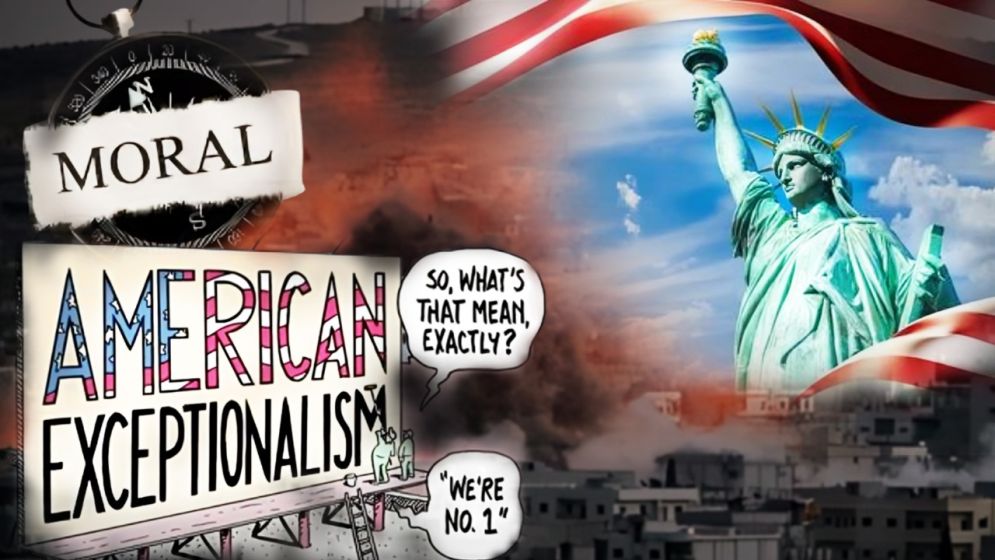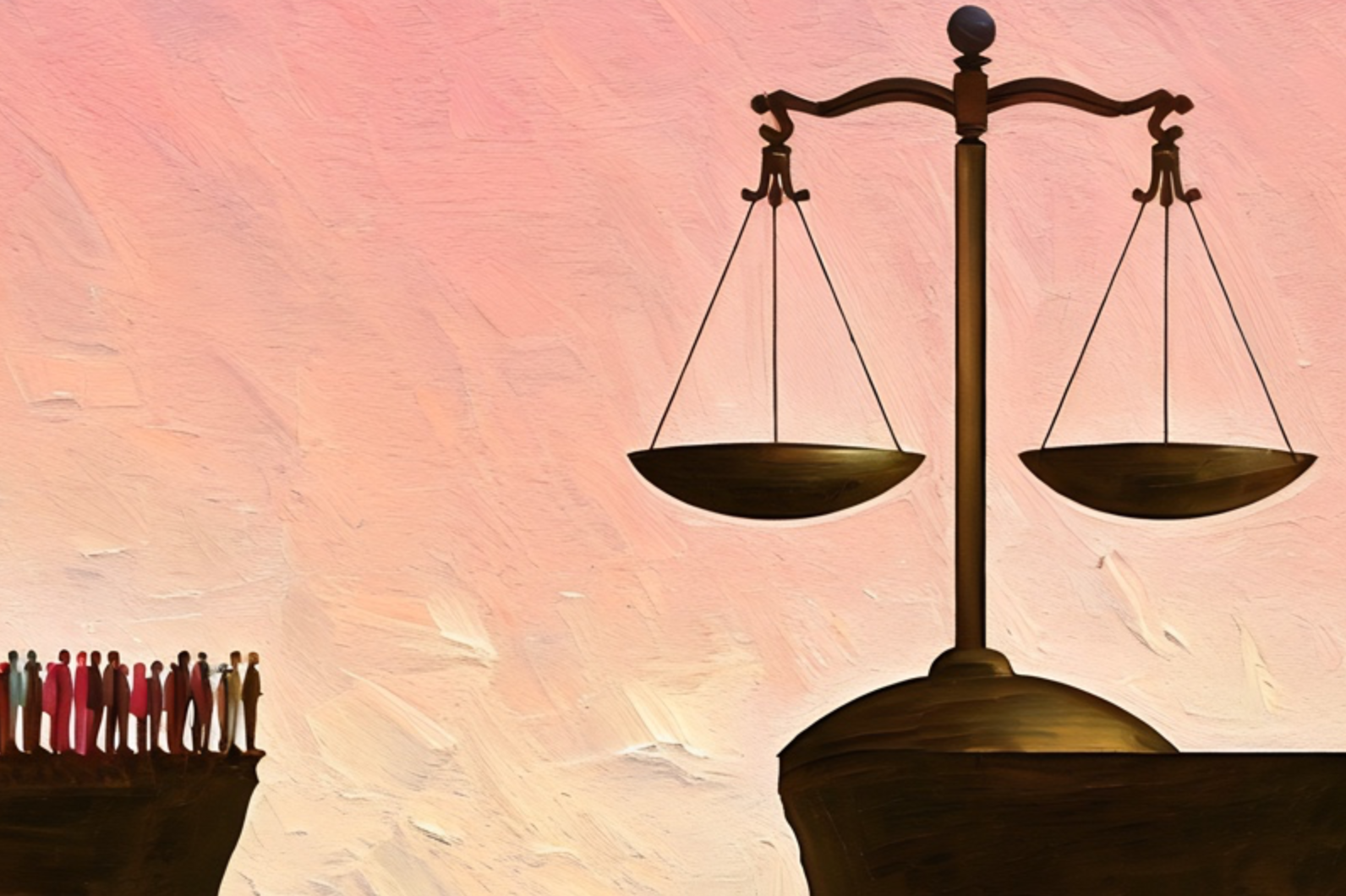Washington’s ‘bomb first, justify later’ doctrine has hallowed out the moral legitimacy of American ‘exceptionalism’

In the long shadow of the 2003 Iraq War, one might hope that the West had learned something from the debacle–a war launched on the pretext of eliminating weapons of mass destruction that never existed, justified in retrospect by claims of “liberation” and “democratization.”
And yet, more than two decades later, a pattern persists: when faced with a perceived threat, the first reflex in Western foreign policy is often force, not dialogue.
It is a curious pathology, this tendency to wield power before attempting to understand.
The typical rationale–couched in terms of preemptive security–asserts that by attacking first, the West somehow saves the other from themselves. In doing so, it draws out their “better angels,” prevents their descent into rogue behavior, and creates the conditions for eventual peace.
This line of thinking, often articulated in polite diplomatic language, borders on the absurd. The idea that one can bomb a people into moral clarity or coercively manufacture peace has been thoroughly discredited–by history, by evidence, and by the lives left shattered in the wake of such interventions.
Yet the myth persists.
Consider the foundational claim behind the Iraq War: that intervention would liberate Iraqis and plant the seeds of democracy. What followed instead was a brutal occupation, a collapsed state, the rise of sectarian violence, and the emergence of extremist groups like ISIS.
And yet, in many Western capitals, the lesson learned was not to question the legitimacy of the “preemptive strike,” but to lament its execution.
Contrast this with the road less traveled: the path of diplomacy, of radical empathy, of asking, what is the source of this conflict, and how might it be resolved without violence?
What would it look like if, instead of drawing red lines and issuing ultimatums, the West sat side by side with its adversaries–in genuine, good-faith attempts to understand rather than performative summits, but ? What if the first step was not a drone strike, but a conversation?
What if the moral courage we praise in soldiers was extended to diplomats who choose dialogue over domination?

The real moral reckoning
This isn’t naïveté. It’s a recognition that peace isn’t forged through the barrel of a gun, but through the slow, difficult work of human connection.
And while this may not always yield immediate results, it avoids the generational blowback that has plagued so many interventions carried out in the name of “freedom.”
The West must ask itself a difficult question: Is its primary goal to lead, or to control? To foster cooperation, or to impose its vision of order? Because if history is any guide, the pursuit of dominance dressed up as humanitarian concern has not only failed those it claimed to help–it has undermined the very principles it sought to uphold.
In an age of rising multipolarity, of climate crises and deep global inequality, the old playbook is crumbling. The world doesn’t need more liberators with missiles.
It needs listeners, bridge-builders, and a willingness to see adversaries as fellow humans with their own histories, traumas, and legitimate grievances.
Peace cannot be imposed. But it can be invited. The question is whether the West is finally ready to offer that invitation.
And also the truth–one that Western powers would prefer to remain unspoken–is that many of these modern conflicts are merely the aftershocks of an unfinished colonial project?
Strip away the language of “national security,” “counterterrorism,” or “humanitarian intervention,” and a more unsettling reality emerges: the West's foundational anxiety is not over rogue states or failed democracies, but over the unraveling of a global order built to serve its interests–primarily, the uninterrupted flow of raw materials from the Global South.
What we are witnessing today is the pushback of nations striving for genuine sovereignty, instead of the illusory independence granted under post-colonial arrangements that kept the economic apparatus of empire intact.
The West’s unease stems from the growing unwillingness of countries in Africa, Asia, and Latin America to continue supplying cheap labor and resources without question.
And it knows, at some level, that any honest negotiation with these nations–any real reckoning with their grievances–would force the acknowledgment of centuries of economic exploitation.

The inconvenient truth
Because here’s the inconvenient truth: the West’s prosperity was not built on a level playing field. It was built on extraction, conquest, and manipulation.
From the plunder of Bengal to the carving up of the Congo, from oil deals struck under puppet regimes to “development loans” that ensured dependence–this is the historical DNA of the global supply chain the West now so desperately seeks to secure.
Even today, commodity pricing mechanisms–controlled largely by Western financial centers–ensure that the wealth of resource-rich nations continues to flow out rather than circulate inward.
Rare earth minerals, cocoa, cobalt, palm oil–each tells a story of imbalance, of a system designed to benefit the consumer, not the producer.
And so, the West resists sincere dialogue–not because it cannot hear the grievances, but because it knows exactly where those conversations would lead. Toward accountability. Toward reparations. Toward the exposure of a centuries-old bargain built on coercion.
But why can’t the West face this reckoning?
The reasons are layered. To confront these injustices would require not only economic restructuring but a philosophical shift in how the West understands its own place in the world.
It would mean grappling with a worldview that, for millennia, has cast Western civilization as the solution to the world’s problems–never as their source. It would mean reimagining power not as dominion, but as responsibility.
That’s a difficult leap to make when your infrastructure, your standard of living, your geopolitical influence, and your cultural prestige are all tethered to a system that presupposes someone else’s subordination.
This isn’t to deny the complexities of global politics, or to romanticize the intentions of non-Western powers. But if the West wishes to lead a truly just international order, it must first stop using force to silence grievances it has refused to address.
And it must recognize that the legitimacy it once claimed through Enlightenment ideals–liberty, equality, fraternity–can no longer coexist with a foreign policy rooted in fear, extraction, and denial.
Because what the world is demanding now is not charity, not even partnership–but justice. And justice, unlike empire, cannot be imposed.
—
Munawar Rashid is an engineer based in Philadelphia, with a keen interest and perspective on global political affairs.

